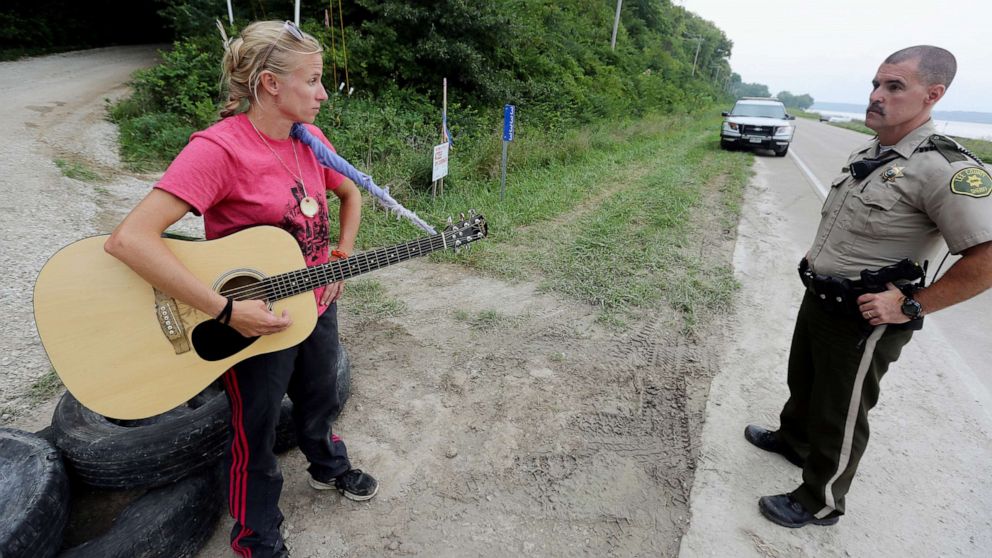
Climate activist's fight against 'terrorism' sentence could impact the future of protests
ABC News
A climate activist jailed for damaging an oil pipeline is appealing after prosecutors had her sentence increased through a so-called "terrorism enhancement."
In the fall of 2016, under the cover of darkness, Jessica Reznicek had a singular focus: to halt the construction of the Dakota Access Pipeline. At valve sites across America's heartland, she snuck through security fences, set fire to equipment, and used chemicals to burn holes in the pipeline itself.
To Reznicek, a veteran climate activist, the damage was justified: a nonviolent act of civil disobedience in pursuit of saving the planet. The Justice Department saw it differently. After Reznicek publicly acknowledged her crimes and entered a guilty plea, federal prosecutors subsequently persuaded a judge to apply a sentencing increase known as the "terrorism enhancement" against her, putting her behind bars for eight years.
The enhancement was applied "even though no person was ever hurt, no person was intended to be hurt, she wasn't charged with terrorism, and she didn't plead guilty to terrorism," said Bill Quigley, Reznicek's attorney and a professor emeritus at the Loyola University New Orleans Law School. "The terrorism enhancement doubled her amount of time in prison, which is troubling."
Next month, when a panel of 8th Circuit Court of Appeals judges hears Reznicek's appeal, the terrorism enhancement will take center stage. Her case has emerged as a potential watershed moment in the eco-extremism movement, galvanizing free-speech advocates and renewing calls for reform. And the outcome could reverberate down through future American protest movements.
